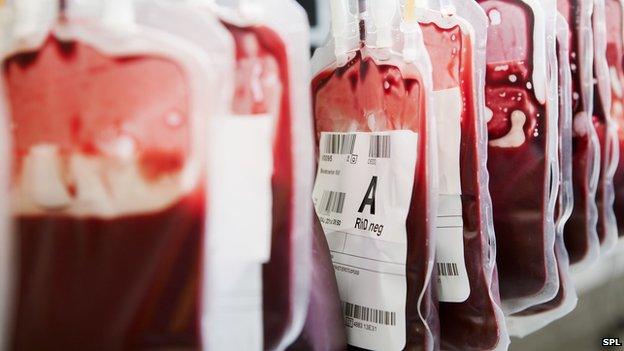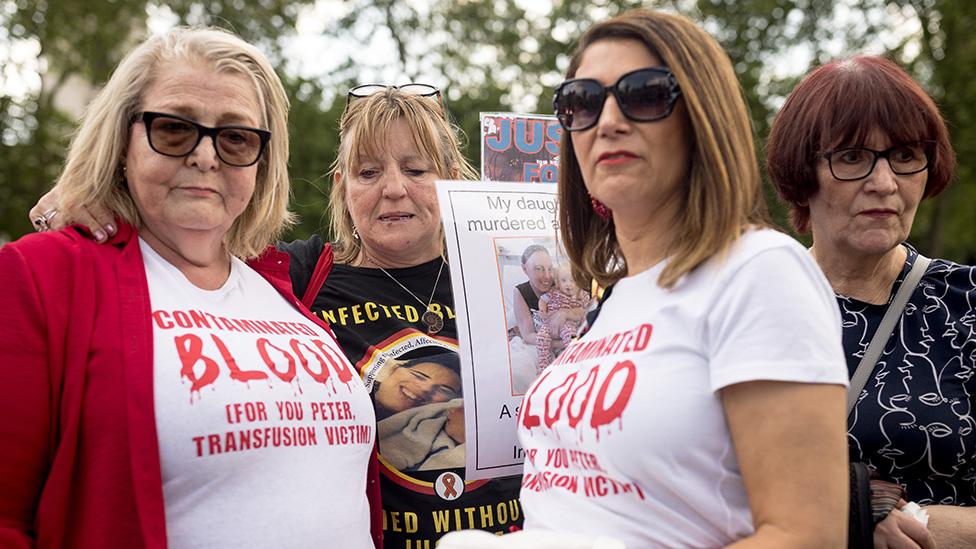Contaminated blood: Annual payments for bereaved partners in NI
- Published
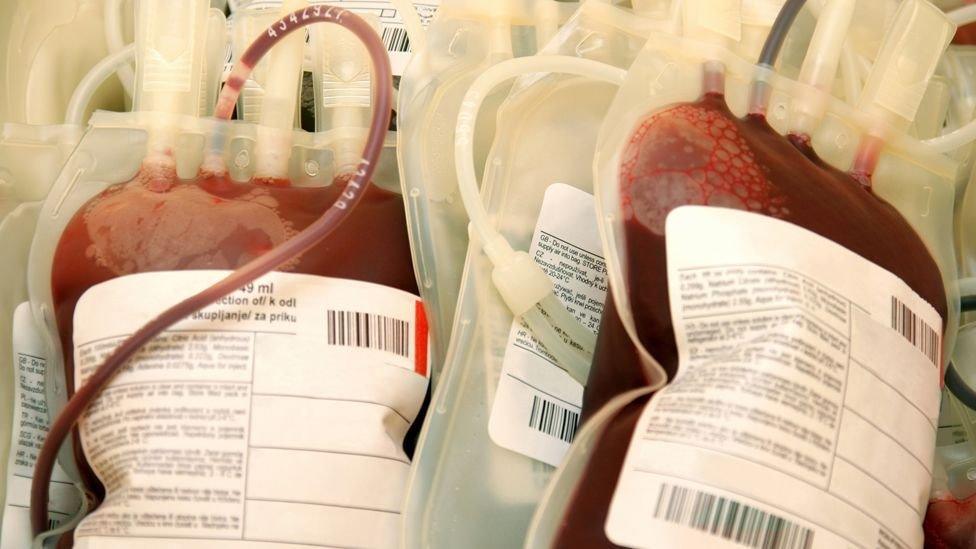
Infected blood donations were pooled and used in the 1970s and 1980s for treatments
People whose spouse or partner died as a result of the contaminated blood scandal are to receive financial help.
Annual payments of up to £33,500 will be given to those whose loved one died after contracting HIV or hepatitis C having been given infected blood.
About 5,000 people, including 99 from Northern Ireland, were infected by what has been described as "the worst scandal in the history of the NHS".
The health minister said those who had been bereaved had not been forgotten.
Robin Swann added: "I have listened to their experiences of how contaminated blood has impacted on their lives and the sacrifices they have had to make.
"I sincerely hope this annual financial support will provide some long-term financial certainty as well as recognition for those bereaved through contaminated blood."
Lives destroyed by infection
People who are eligible for the payments will receive a letter outlining the details in the coming weeks, said the Department of Health.
The payments will be backdated to April last year and will cost about £400,000 a year, it added.
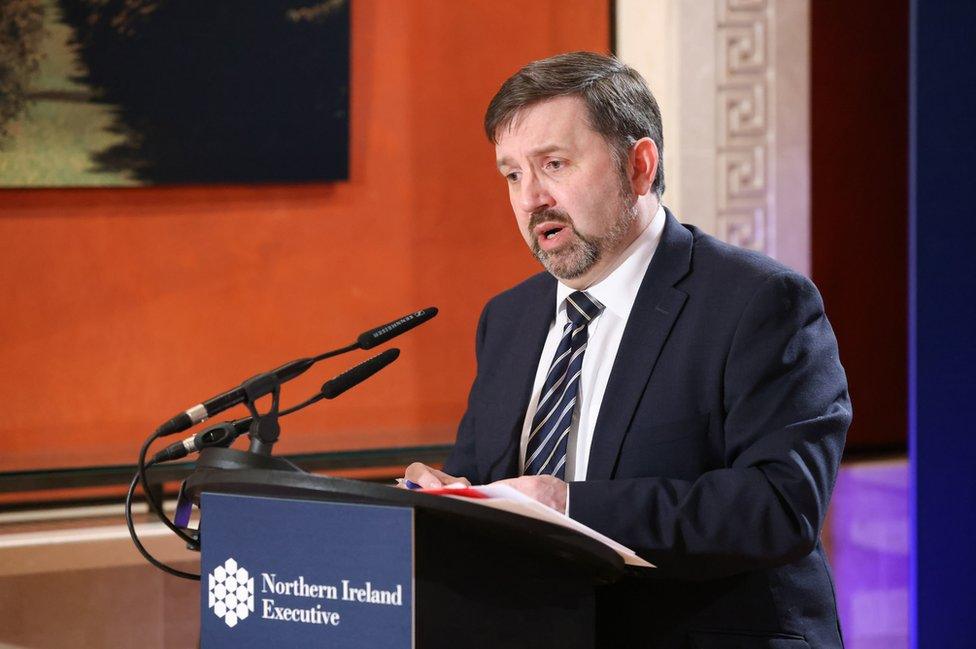
People who lost loved ones to illness resulting from infected blood have not been forgotten, says Robin Swann
The contaminated blood scandal resulted in people who had haemophilia being treated with blood infected with hepatitis C or HIV in the 1970s and 1980s.
At the time the UK was struggling to keep up with demand for the Factor VIII blood clotting treatment, so supplies were imported from the US.
But much of the human blood plasma used to make it came from donors such as prison inmates and drug-users who sold their blood.
Those groups were at higher risk of blood-borne viruses.
Victims have campaigned for decades, saying the risks were never explained to them and the scandal was covered up.
An ongoing public inquiry has been hearing harrowing stories from people across the UK about how lives had been destroyed by the blood.
Last summer victims in Northern Ireland had their annual financial support increased, with the amount dependent on their diagnosis.
They had previously been receiving less money than their counterparts in England, Scotland and Wales.
In some cases the difference had been as much as £14,000 a year.
- Published31 August 2020
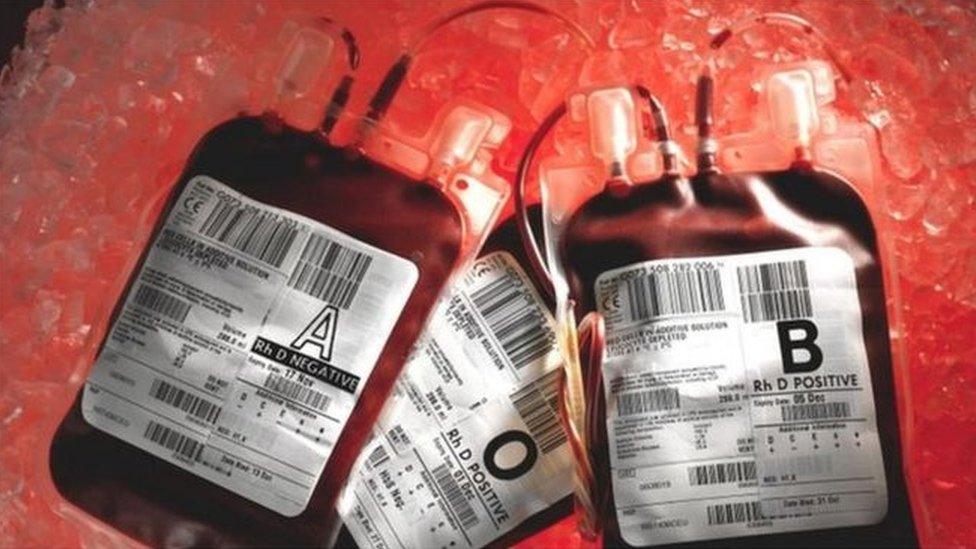
- Published2 August 2018
